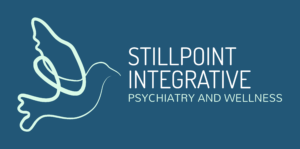Introduction
Sleep is often overlooked as a key pillar of mental health, yet its impact on mood, cognition, and emotional regulation is profound.
Many people struggle with sleep disturbances, whether due to stress, anxiety, or lifestyle habits that disrupt the natural sleep cycle.
Understanding the connection between sleep and mental health is essential for optimizing both.
This article explores how sleep influences brain function and emotional well-being, along with practical strategies to improve sleep quality for better mental health.
The Science Behind Sleep and Mental Health
Neurotransmitters and Sleep
Sleep plays a critical role in regulating neurotransmitters like serotonin, dopamine, and GABA, which influence mood, motivation, and stress responses. Poor sleep can lead to imbalances in these chemicals, contributing to anxiety, depression, and difficulty concentrating.
The Role of REM and Deep Sleep
REM sleep is essential for emotional processing and memory consolidation. Deep sleep, on the other hand, supports physical restoration and the regulation of stress hormones. Disruptions in these sleep stages can lead to mood instability and cognitive impairments.
Sleep Deprivation and Mental Health
Chronic sleep deprivation increases levels of cortisol, the body’s primary stress hormone, leading to heightened anxiety and irritability. Long-term sleep deficits are linked to an increased risk of developing psychiatric conditions such as major depressive disorder and generalized anxiety disorder.
The Impact of Poor Sleep on Mood and Focus
Mood Fluctuations
Lack of sleep is directly associated with heightened emotional reactivity. Individuals who experience poor sleep are more prone to negative emotions, stress sensitivity, and decreased resilience to daily challenges.
Cognitive Function and Focus
Sleep is essential for executive function—our ability to plan, focus, and make decisions. Insufficient sleep impairs working memory, slows reaction times, and decreases problem-solving abilities, making it harder to navigate daily tasks efficiently.
The Sleep-Stress Cycle
Stress and sleep deprivation reinforce each other. Increased stress leads to difficulty falling or staying asleep, while poor sleep exacerbates stress, creating a vicious cycle that can negatively impact mental health over time.
Practical Tips to Improve Sleep for Better Mental Health
1. Optimize Sleep Hygiene
- Maintain a consistent sleep schedule, even on weekends.
- Create a dark, cool, and quiet sleep environment.
- Limit screen exposure before bedtime to reduce blue light interference.
2. Relaxation Techniques for Better Sleep
- Try meditation, deep breathing exercises, or progressive muscle relaxation before bed.
- Reduce stimulating activities in the evening and engage in calming routines such as reading or light stretching.
3. Nutrition and Supplements for Sleep
- Magnesium-rich foods (e.g., leafy greens, nuts) help relax muscles and promote sleep.
- Herbal teas like chamomile and valerian root support relaxation.
- Melatonin supplementation may be helpful for those with circadian rhythm disturbances, though it should be used with guidance from a healthcare provider.
4. Exercise and Sleep
- Regular physical activity enhances sleep quality, but exercising too close to bedtime may interfere with falling asleep.
- Aim for at least 30 minutes of moderate exercise most days of the week.
5. Managing Stress for Better Sleep
- Incorporate daily stress-reduction practices such as journaling, mindfulness, or therapy.
- Address underlying mental health concerns that may be disrupting sleep, such as anxiety or unresolved trauma.
When to Seek Professional Help
Recognizing Sleep Disorders
If persistent sleep disturbances impact daily life, they may indicate an underlying sleep disorder such as insomnia, sleep apnea, or restless leg syndrome. Seeking medical evaluation can provide clarity and solutions tailored to individual needs.
Integrative Psychiatry Approaches to Sleep Issues
A holistic approach considers factors like stress, diet, and lifestyle when addressing sleep concerns. A psychiatric provider with an integrative focus can provide guidance on combining lifestyle changes with targeted treatments to support both mental health and sleep.
Conclusion
Prioritizing sleep is essential for maintaining emotional stability, mental clarity, and overall well-being.
By understanding the role of sleep in mental health and implementing practical strategies to improve sleep quality, individuals can experience better mood, focus, and resilience.
If sleep struggles persist, seeking professional support can offer personalized solutions for achieving restorative rest.
For those looking to improve both sleep and mental health, Stillpoint Integrative Psychiatry and Wellness offers expert guidance tailored to individual needs.
Schedule a consultation today to take the first step toward better sleep and overall well-being.
Related Article: Magnesium Glycinate for Improved Sleep and Mental Health

